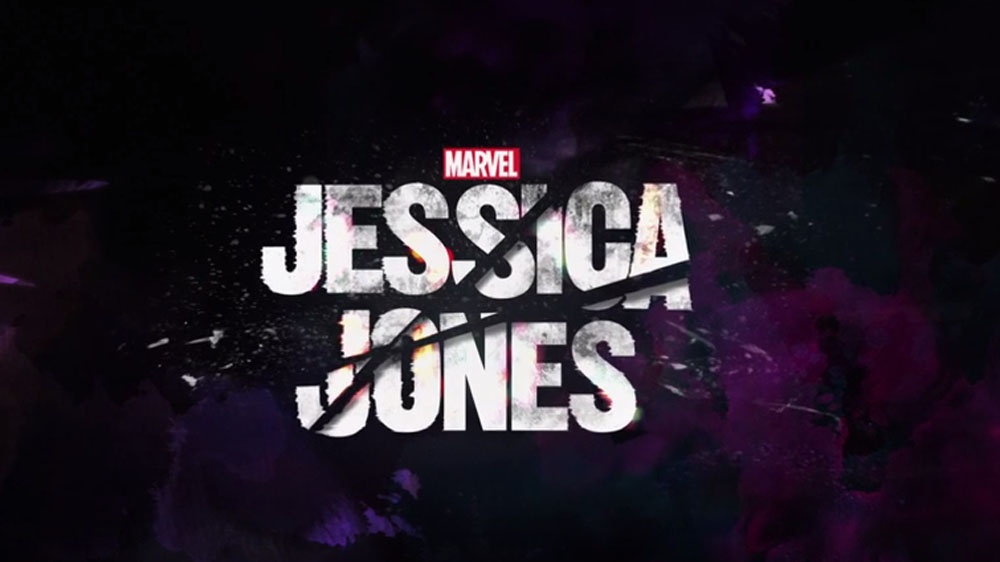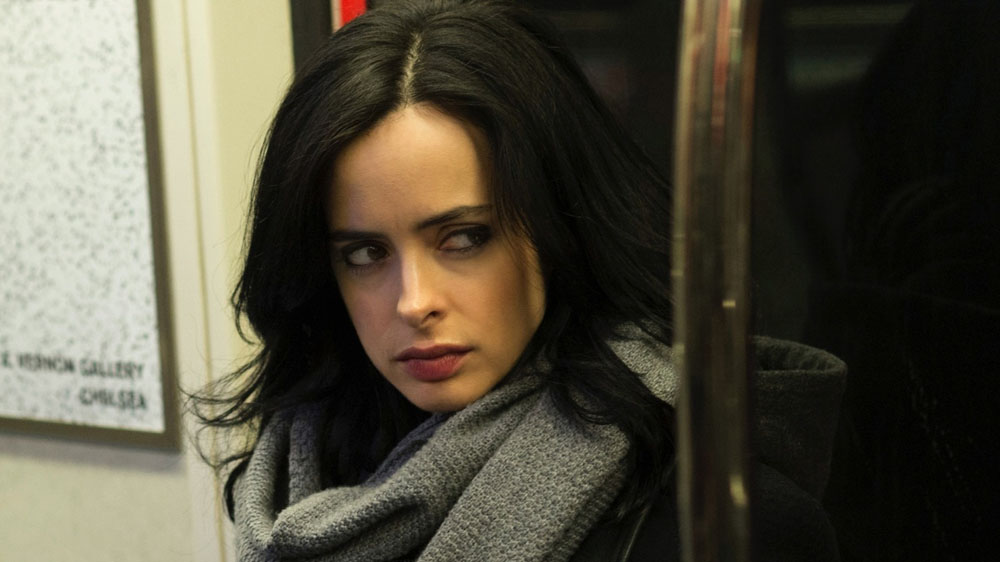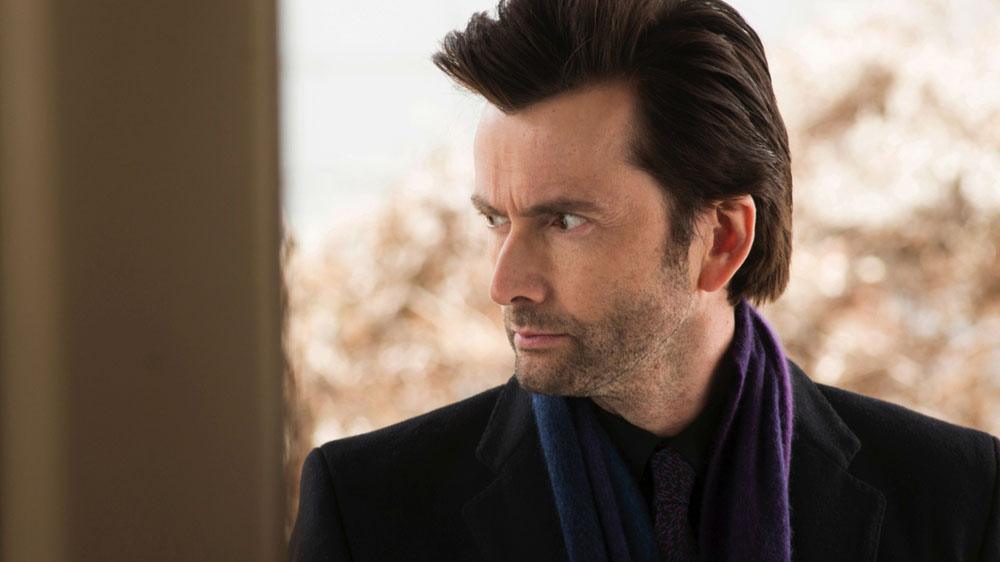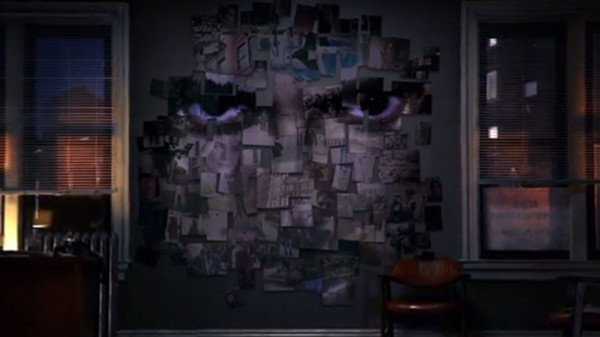Netflix’s first season of Daredevil was notorious for peaking somewhere in the middle, with a run of a few episodes with an unerring focus and blistering sense of tension and pace.
Jessica Jones has patiently taken longer to reach its peak, opting for a more sustainable pace – but it certainly reaches it with these three episodes; a terrific trilogy that, together, deliver on everything this series promised and more.
Not all of the three are rapidly paced, but they all excel at what they strive to be, collectively acting as a sign of how great this show can be.
Episode 8, ‘AKA WWJD?’ gets the ball rolling by finally delving heavily into the backstory and psyche of our villain, Kilgrave. It’s here where Jessica Jones begins to delve into heavy, hard-hitting issues with a genuine willingness to deliver substantial social commentary.
It’s one of the less outwardly bleak instalments of the show, cleverly set in a dissonantly bright, idyllic suburb, but the topics here tackled through Kilgrave such as child experimentation and rape culture are as pitch-dark as anything Jessica Jones has tackled before.
Despite that, everything is handled with sensitivity despite the unflinching focus, and the show never devolves into crass shock tactics through these topics – they’re here for meaningful exploration rather than cheap surprise.

The episode also serves to flesh out Kilgrave’s character by giving him an appropriately traumatising back-story, but ‘AKA WWJD’ handles matters well by refusing to ever condone or justify his repugnant actions.
Jessica’s cutting analysis of Kilgrave’s self-justification acts as a superbly effective subversion of the ‘traumatic past as justification for villainy’ cliché, incorporating it further into the exploration of Kilgrave’s delusion while refusing to trivialise Kilgrave’s genuine childhood suffering and stunted development.
As compelling as Episode 8’s exploration of Kilgrave’s tragic past is, it’s in Episode 9, ‘AKA Sin Bin’, where this batch of episodes and perhaps the series as a whole peaks. It’s an hour succeeds by putting Kilgrave on the back foot for the very first time, really allowing Jessica to let loose and punish him for his actions.
He’s beaten, embarrassed and emasculated here, and while there’s a cathartic satisfaction in his deserved punishment, the trapped Kilgrave we see here comes very close indeed to becoming piteous. Seeing the villain in this pathetic situation grounds him somewhat, turning him from the understandably nebulous shadow with terrifying power he was in the season’s first half to something far more mundane and real.
Kilgrave is the MCU’s pettiest villain yet, and there’s something deeply fitting about how he goes through the ringer in front of Jessica here.

‘AKA Sin Bin’ also follows up on the exploration of Kilgrave’s past with an intriguing twist in the tale. The revelation of Kilgrave’s skewed telling of the true story of his traumatic childhood is one that’s so fitting for Kilgrave’s character that it almost seems obvious in retrospect, showing Jessica Jones’ ongoing, admirable commitment to never justifying the villain’s actions by playing the traumatic past trope entirely straight, but it’s the ending that really says the most about Kilgrave this episode.
Seeing Kilgrave’s mother brutally kill herself on his command is an utterly gut-wrenching moment – a moment that’s uncomfortable to watch in how it viscerally underlines the true villainy of Kilgrave, yet gripping in its unflinching brutality.
Finally, there’s Episode 10, ‘AKA 1000 Cuts’, which somehow manages to keep the pace up. It’s the titular ‘1000 cuts’ scene that really typifies this episode – an exercise in protracted, sadistic brutality that’s impossible to pull away from, coming to a blisteringly violent climax.
Jessica Jones has leaned far more on psychological violence than physical, but this scene is an indicator of how visceral and shocking this show’s violence can be, with Netflix’s lack of regulation allowing for a truly memorable scene that actually manages to tie together the divorce drama into the Kilgrave situation with surprising finesse.

For the sake of brevity, it’s worth jumping to the other end of ‘1000 Cuts’. The support group’s near-death experience at the hands of Kilgrave rests on hopelessly shaky foundations (Robyn is a shrill caricature of a character, and does not deserve any kind of focus), but like the 1000 cuts scene this is the type of television that sears onto your mind – a scene that was actively stressful to watch.
It’s made even more gut wrenching by its conclusion, in which Hope commits suicide to try and force Jessica to kill Kilgrave. There’s valid complaints to be made that Jessica Jones is getting too grim at this point, killing off the only true object of hope (natch) within the series in such a brutal fashion, but it’s hard not to admire how the series heads to dark territory and then guns the trigger, covering material that’s often exhausting but always compelling to watch.
Jessica Jones might be a little too dark, but as these three episodes suggest, this is a show that’s terrific at being dark, and is entirely unafraid to go places in the story many other shows of this kind would never think of going.
And now, just three final episodes to go…
![]()
All 13 episodes are available to watch on Netflix now.
> Follow Louis Rabinowitz on Twitter.
What do you think of Marvel’s Jessica Jones so far? Let us know below…

